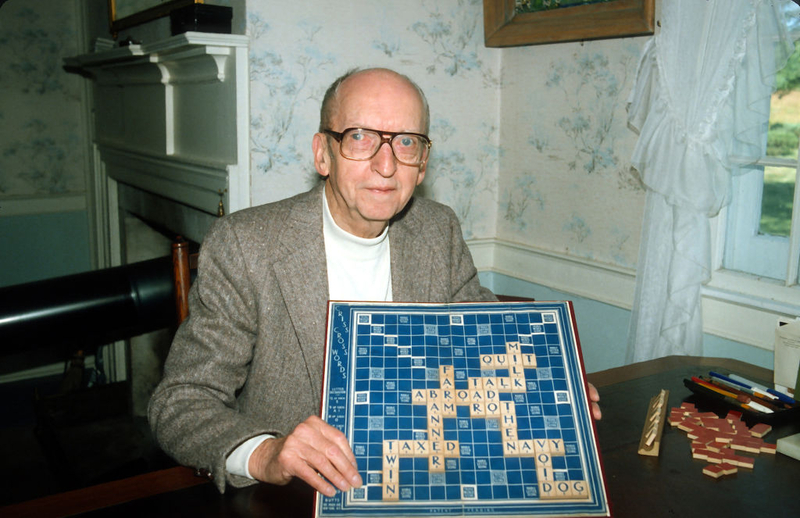Alfred Mosher Butts fell on hard times after being put off from his position at an architectural business in 1931. He’d been out of a job for a while when he became inventive. With his newfound free time, he decided to attempt to design a game. He performed a study and discovered three sorts of games: those based on words and letters, those based on numbers, such as cards or dice, and board games, such as checkers and chess.

There Was an Evolution to It
As a lifetime crossword puzzle fan, Alfred started developing a word game, initially releasing Lexiko. This game would be played by randomly picking nine letter tiles and building words out of them. He attempted to sell the game to various well-known producers, but he was turned down. Alfred didn’t let rejection stop him and proceeded to improve the game. He reduced the number of letter tiles drawn at once to seven and added a board that allocated point values to each letter depending on how often it was used in the English language. This rendition was dubbed Criss-Cross Words by him, but no one was interested once again.
The Final Version
In the meantime, Alfred was rehired by his architectural business, but he continued to improve his game. It had a limited fan base and was selling in modest numbers. One of the players, James Brunot, was very impressed by this game. In 1947, James contacted Alfred about purchasing the game’s rights. Alfred would get royalties, but James would oversee the game’s development. James also made a few changes, such as introducing new rules like modifying the board colors and the 50-point limit for playing all seven tiles at once. He also renamed the game “Scrabble.”
Popularity Went Through the Roof
Scrabble sales were slow for a few years, but the game had its big break in 1952. The game’s popularity skyrocketed once Macy’s ordered a huge supply of it. More than a million sets of Scrabble were sold in 1953, and 3.8 million were sold in 1954. Soon after, James granted Selchow & Righter Co. the rights to sell and distribute Scrabble in Canada and America. Coleco Industries purchased Selchow & Righter in 1986, but the company entered bankruptcy in 1989. Hasbro Inc. purchased Scrabble and other Coleco properties the next year. Scrabble is now the second best-selling game in American history, after the notorious Monopoly. The game is even competitively played, with the inaugural National Scrabble Championship event held in 1978.
Alfred died in 1993. He did not become wealthy as a result of his invention, but he did enjoy the international success of Scrabble, which continues to sell millions of sets each year in 28 different languages worldwide.